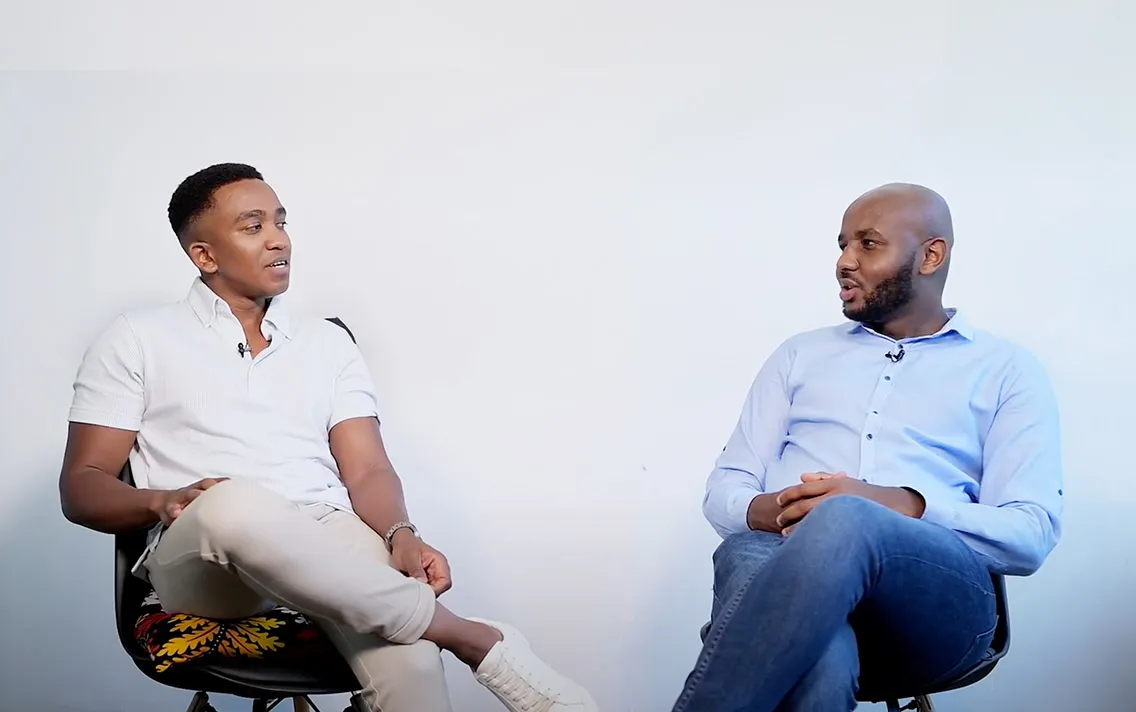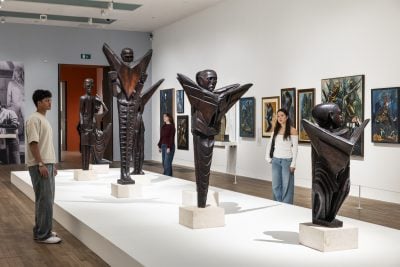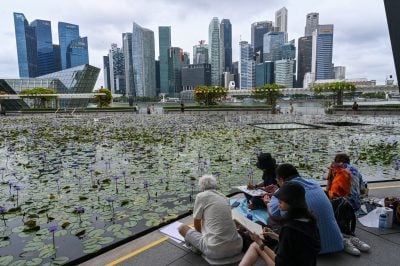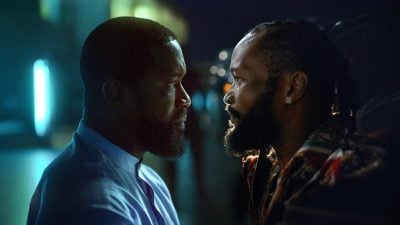Video podcasters are winning loyal audiences in Kenya and reshaping the commercial dynamics of the country’s media and entertainment industry. Many popular Kenyan video podcasters have now surpassed traditional broadcasters in terms of average viewer engagement per YouTube video, according to a new research report by Odipo Dev, a data analytics and research firm based in Nairobi.
“In our sample, the average podcast video racks up over seven times the views of a mainstream media upload, and 14 times more engagement (likes, shares, and comments). A podcaster like Abel Mutua, with just 96 uploads in 2024, outperformed Nation Media, which posted 3,749 videos in the same period,” said Odipo Dev.
The report ranked Mutua as Kenya’s top podcaster in terms of average views per video (306,500), capturing YouTube data from 1 January to 31 December 2024. Lynne Ngugi was the runner-up with average views per video of 248,100, followed by 3MenArmy Kenya (167,100), and Dr. King’ori (113,600).
The report found that Kenya’s podcasting scene has attracted a predominantly young, male audience. Males comprise 71% of the listeners for the top 10 podcasts, and that proportion remains substantial at 65% when considering the top 20 podcasts. The largest portion of this audience falls within the 25 to 34 age bracket.
Bigger investments in podcasts
Odipo Dev argues that heightened audience engagement levels on podcasts have provided an incentive for advertisers and other stakeholders to make bigger investments in the space.
They now “seriously consider podcasts as a viable choice,” the firm notes, adding that “these stakeholders (advertisers, donors, investors) are recognising the potential that lies in podcasts. Some of them view them as cheaper and more effective [than traditional broadcasting].”
Increased investments from brands and sponsors will help Kenyan podcasters overcome high production costs and publish quality content more consistently, argues Eli Mwenda, who co-hosts the popular Mantalk.ke podcast with Oscar Koome.
Launched in 2019, the podcast champions positive masculinity and progressive social change in black communities and has produced over 250 episodes and amassed 170,000 subscribers across its YouTube and social media channels. The duo discuss topics like entrepreneurship, personal finance, fatherhood, health, and relationships – bringing in the occasional guest to help drive some of the conversations.
“The ambition for the podcast was to have a safe space for men to have a voice, and to listen to other thought leaders. It’s a big passion of mine and a passion that I share with my co-host as well,” Mwenda tells African Business.
A self-funded adventure
Drawing on his journey building Mantalk.ke, Mwenda says that the high cost of consistently producing quality video content was a major challenge they had to overcome. He says that until October last year the podcast was self-funded – an option that he acknowledges is unavailable to many Kenyan creatives due to financial constraints.
“There’s a lot of money going into production and equipment. It’s a massive financial cost. We always joke, me and Oscar, that if we wanted to be rich, we wouldn’t podcast, we would be farmers,” he says.
Mwenda works in marketing while Koome is a lawyer working in venture capital. The two had to routinely dip into their savings to keep the dream alive. However, with production and operational costs mounting, Mwenda admits that self-funding increasingly seemed unsustainable. They therefore turned to external partnerships with brands and organisations in the ecosystem, securing support from audio platform Spotify and whisky brand Johnnie Walker.
“Overall it’s been a self-funded podcast until late last year… if you go to any of our podcast episodes since October, you’ll see our sponsor there, which is Johnnie Walker. Essentially, it’s them promoting positive media. It’s not product-focused. It’s more to do with the sentiment of ‘keep walking’ and walking through life’s challenges,” he elaborates.
He describes the partnership with Johnnie Walker as a major commercial breakthrough for the podcast. He reveals that the podcast also benefited from a grant from Spotify’s Africa Podcast Fund Programme, which in 2022 invested $100,000 to support 13 digital creators from South Africa, Nigeria, Kenya, and Ghana.
“We’ve had location sponsors as well… apart from that [Johnnie Walker and Spotify] it’s basically self funded,” he says.
He insists that there is a need for accelerated investments in the broader creative economy to create jobs for young Kenyans. Many individuals still do not consider opportunities in podcasting and similar fields as viable careers due to uncertainties surrounding the financial rewards, he argues.
“We need to invest in locations where youth can shoot videos. We need to invest in the broader creative industry. There’s so many talented editors and videographers, but there’s just not enough money and work for them to be able to make a living off that,” Mwenda says.
A great tool for business
Moses Kemibaro, CEO of Dotsavvy, a digital marketing agency in Nairobi, argues that podcasts have emerged as a great business tool for digital marketers like himself. He tells African Business that he has been able to leverage his experience hosting podcasts about technology to achieve favourable commercial outcomes for the marketing agency, which supports clients operating in the digital economy.
“We have clients coming to us and saying we need to communicate our offerings in a way that is a bit more authentic. I’ll then do a video podcast series, and I’ll have conversations with them to unpack the products,” Kemibaro says. He notes that after seventeen years blogging about tech, transitioning to video podcasts was the next logical step given what he describes as the “growing importance of video content” in the media and entertainment industry. “We’re in an attention economy so video is obviously very important,” he emphasises.
He says that specialist studios are emerging in Kenya, where creatives keen on podcasting can affordably outsource video production – eliminating the huge costs associated with shooting and producing.
He offers the example of SemaBOX, a specialist podcast studio based in Nairobi, which provides technology and production capacity for podcast-making and storytelling for creators. “You get 4k video, high quality audio and post-production, all in one place.”
Reaching the people
Mary Wamae, a retired banker and lawyer, says that podcasting has enabled her to reach significantly more people with her mentorship programme. She was formerly the group executive director at Equity Bank, where she spent twenty years in several legal and directorship roles until September last year when she left the bank. She now focuses on mentorship and coaching young leaders and launched her podcast, The Executive Table, as a platform to share insights on leadership.
She says her podcast has helped her reach far more people than she had initially thought possible. “I remember when we started, I organised an in-person event here in Nairobi, where we hosted around 300 people at a hotel. I felt that the number was too low and the logistics too complicated. Podcasts provided a way to reach many more people at a fraction of the cost,” she tells African Business in Nairobi.
Wamae has in less than a year of launching her video podcast welcomed Kenyan business leaders such as John Gachora, CEO of NCBA Bank, Gitahi Githinji, CEO of Amref Health Africa and Linus Gitahi, chairman of Diamond Trust Bank. They have talked on topics including success, learning from failure, personal finance and career growth. She says that, going forward, her podcast is looking to feature more women in leadership.
She adds that monetising podcasts requires patience and consistency, as “you must first build credibility and trust with audiences before you think of accepting money from external sources.”
TikTok, she says, has emerged as one of the most significant drivers of podcast viewership. However, she says that a winning strategy on TikTok requires one to adapt content to the platform. Shorter-form videos work best on the platform; TikTok users often migrate to other platforms such as YouTube for longer form content. Humour also has more of an impact on TikTok.
“We focus on edifying and serious topics about leadership, but sometimes people are going to TikTok for comic relief. I therefore try to occasionally find ways to humanise my content on the platform and show people that at the end of the day we’re living normal lives, facing the same pressures everyone is facing,” she says.
Want to continue reading? Subscribe today.
You've read all your free articles for this month! Subscribe now to enjoy full access to our content.
Digital Monthly
£8.00 / month
Receive full unlimited access to our articles, opinions, podcasts and more.
Digital Yearly
£70.00 / year
Our best value offer - save £26 and gain access to all of our digital content for an entire year!

 Sign in with Google
Sign in with Google 



